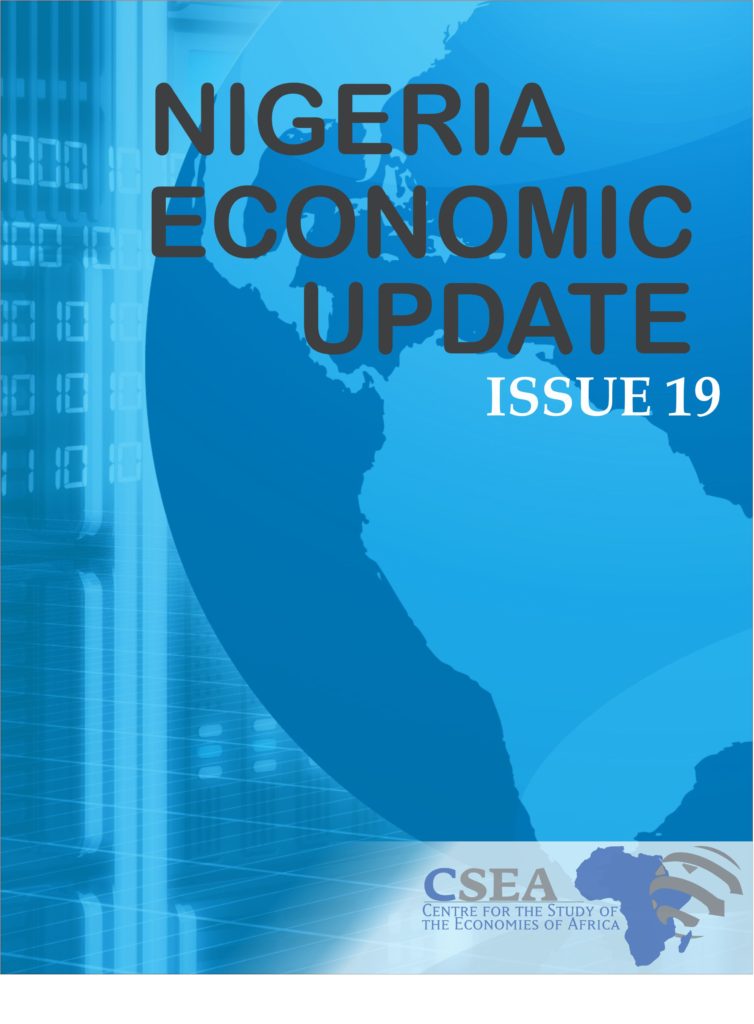Capital imported into Nigeria, maintained an upward trajectory in 2018Q1, following three consecutive quarterly increase. Specifically, capital importation rose to $6.30 billion in 2018Q11– a remarkable Year-on-Year growth of 594 percent (from $908.27 million), and Quarter-over-Quarter increase of 17 percent ($5.38 billion). Inferably, investors’ interest and confidence in the Nigerian economy have continued to soar since 2017Q2; this is particularly represented by the extent of portfolio investment flows which increased approximately fifteen times more than the $313.61 million recorded in the corresponding 2017Q1 quarter, and accounted for 72.4 percent of total capital importation in the review quarter
Macroeconomic Report & Economic Updates

June 14, 2018
Nigeria Economic Update (Issue 19)
Capital imported into Nigeria, maintained an upward trajectory in 2018Q1, following three consecutive quarterly increase. Specifically, capital importation rose to $6.30 billion in 2018Q11– a remarkable Year-on-Year growth of 594 percent (from $908.27 million), and Quarter-over-Quarter increase of 17 percent ($5.38 billion). Inferably, investors’ interest and confidence in the Nigerian economy have continued to soar […]
Read →
Related
Nigeria Economic Update (Issue 1)
Nigerias external reserves improved in 2017. The reserve stood at approximately $39 billion as at the end of December 2017, up by about 50 percent from the $26 billion at the beginning of the year 20172. The surge in reserve was particularly boosted by increased capital importation, and crude revenue earnings prompted by a relatively higher crude oil price and improved domestic production. Given that the recent uptick in external reserves is still largely associated with improved crude oil price, efforts should be geared towards conserving current reserve gain so as to cushion future external shock. In the medium term, there is need to diversify export earning away from oil so as to mitigate the effects of volatility in crude oil prices.
Nigeria Economic Update (Issue 42)
The
NSE market indices recorded a bear market rally for the third consecutive week
in September. Specifically, All-share index and Market Capitalization increased
marginally by 0.31 percent to close at 28,335.40 points and N9.73 trillion
respectively on September 30, 2016. Major drivers of the rally include;
increased trade-volume of financial, agricultural and consumer-goods
securities. The continued rise in market indices may be connected to a
sustained investor confidence in the agricultural and financial sectors on the
account of the ongoing activities of the government and the CBN to stabilize
the sectors.
